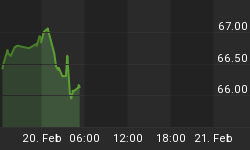France, heartbeat of the European social ideal, is facing an existential crisis caused by the impact of the lockdown of its economy.
Nowhere is that more evident than in the Grand Est region of northeastern France, termed the heart of the country’s auto industry, according to the Financial Times.
Jean Rottner, the region’s president, does not see the local economy getting back to pre-crisis levels for two to four years.
Talk of a V-shaped recovery for much of Europe is thought to be laughable despite massive government intervention to support employers keeping staff on the payroll.
The reality is, for some it is only delaying the inevitable.
The Financial Times reports almost half the Grand Est region’s workforce, a figure of nearly a million workers, was on government support schemes at the start of this month. The auto industry was said to be operating at only 8% of capacity last month and may only hit 20% this month. Even the “new normal” is expected to be at best 70-80% of last year’s output — and it may be even lower, local businessmen suggested.
Of course, France is not alone.
Spain, Italy and the U.K. have all experienced similar devastation of many parts of both manufacturing and services sectors. However, France has particularly inflexible labor laws that hinder companies’ ability to adjust and react. Hiring and firing workers is a tortuous process in France, making companies that can use the excuse of the virus to shed labor, and probably avail themselves of some government support for workers in the process, but may well be reluctant to rehire as business picks up in an uncertain post-virus world. That reality will hinder France’s recovery. As the second-largest economy in the E.U., it will be a drag on the whole of the Union in the years to come.
Recently, French Finance Minister Bruno Le Maire has dropped hints the government is going to create incentive schemes to support both automotive and aerospace producers. Related: Could COVID-19 Lead To Authoritarianism?
Politicians, though, cannot help themselves; stimulus measures will come with strings attached.
Support is expected to be directed to bolster specific objectives, such as for low- or zero-emission vehicles, development of electric vehicle (EV) battery manufacturing, and — a longtime favorite of France — reshoring manufacturing from outside the country back to within its borders. It is unlikely, unless they give them away, that large swatches of the French public are going to be suddenly persuaded to buy EVs; last year, the technology struggled to gain more than 2% of the market.
Spain, likewise, enforced one of the most stringent lockdown enforcement regimes in Europe and is still looking to extend it for some regions into June. A Financial Times post this week painted a dire view of the economic damage, quoting Pablo Hernández de Cos, Spain’s central bank governor, who said that while first-quarter gross domestic product shrank by just 5.2% he expected a “significant acceleration” in the decline between May and June. He expects any rebound next year would be insufficient to return Spain to its pre-crisis economic levels in 2021 and that the economy will shrink between 9.5% and 12.4% this year and only grow between 6.1% and 8.5% in 2021. As with much of Europe, debt is expected to rise dramatically, possibly from about 95% of GDP last year to 120% by the end of this year. Related: The Origins Of Globalization
The old caution that an army can win the war but lose the peace could prove to be the case for some European economies.
It will take potentially years rather than the hoped-for months for GDP to recover to where it was before the virus and for debt levels to be brought back into manageable territory. Meanwhile, while we should be glad the death toll was not higher, questions will be asked as to the financial cost future generations will pay.
More Top Reads From Safehaven.com:

















